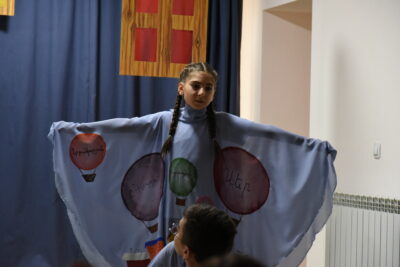By Aram Arkun
Mirror-Spectator Staff
WATERTOWN — Journalist and analyst Tatul Hakobyan gave a talk on current Armenian events at St. Stephen’s Armenian Apostolic Church on September 8 as part of a tour to various venues in seven Armenian-American communities, including Chicago, Detroit, Fair Lawn (NJ), Nashville, New York and Washington DC.
Hakobyan is a reporter and analyst for the Civilitas Foundation in Yerevan and director of the Yerevan-based ANI Foundation for Armenian Studies, established in 2015 to deal with contemporary Armenian issues. He speaks Armenian, Russian, English and Spanish. He is the author of two books in Armenian, which have also been translated into English: Green and Black: Karabakh Diary and View from Ararat: Armenians and Turks. The latter work received the Tekeyan Cultural Association’s Haigashen Ouzounian Literary Prize in 2014.
Hakobyan spoke clearly in Armenian in an informal and lively fashion. He prefaced his talk by proclaiming that he was an independent journalist without ties to any political parties or the Armenian government. He said that the main theme of his talk is that the cause of all the problems of the Armenians is to be found in Armenia, hidden within us. This implies that the cure, too, is to be found in the same place.
He began with the questions of whether a new war was possible in Artsakh and why the April fighting took place. He said, “I have been writing for 25 years on the topic of Karabagh, and I believe that a new war will take place since the conflict has not been resolved.” Azerbaijani journalists on various occasions in Georgia have told Hakobyan that as soon as Azerbaijan’s ruler Ilham Aliyev learns that Russia would not intervene for a period of 10 days for any reason whatsoever, he would begin the war on the next day. In other words, Russia is the fundamental factor holding Azerbaijan back.







